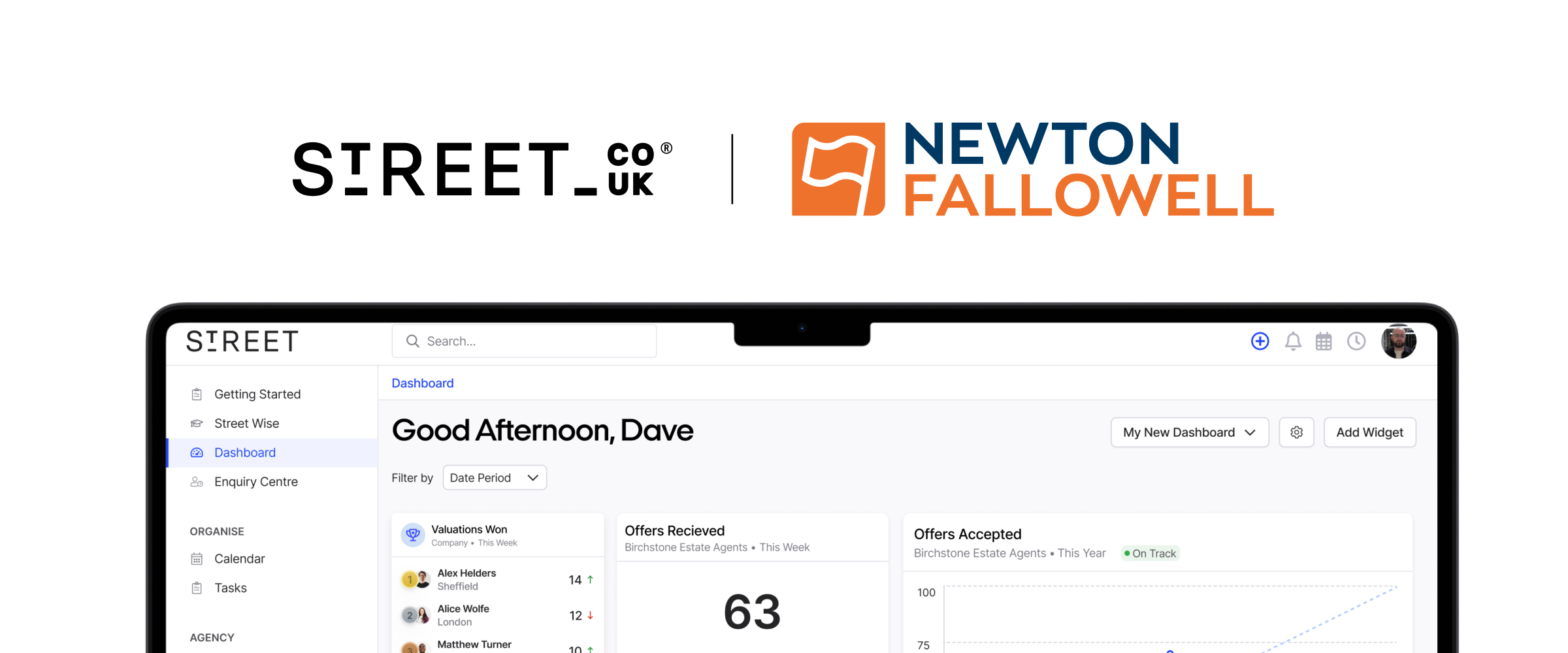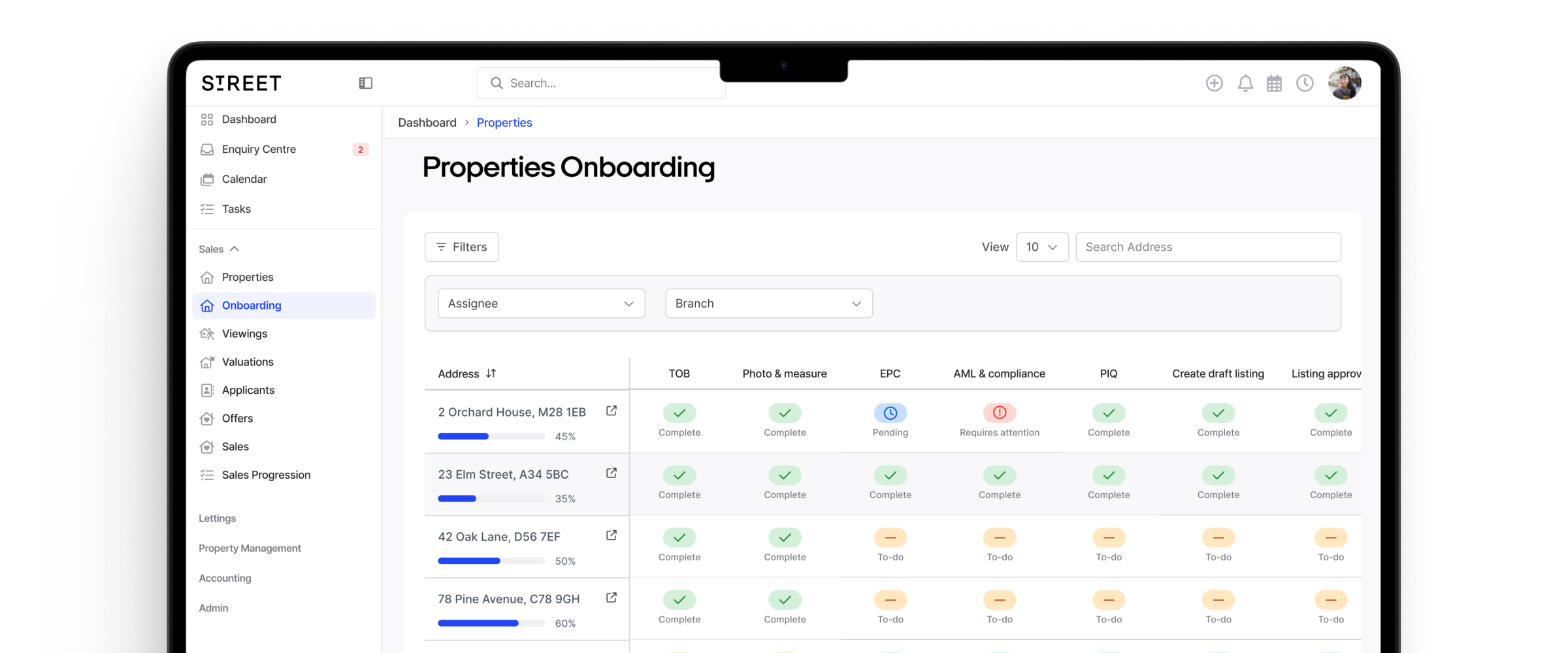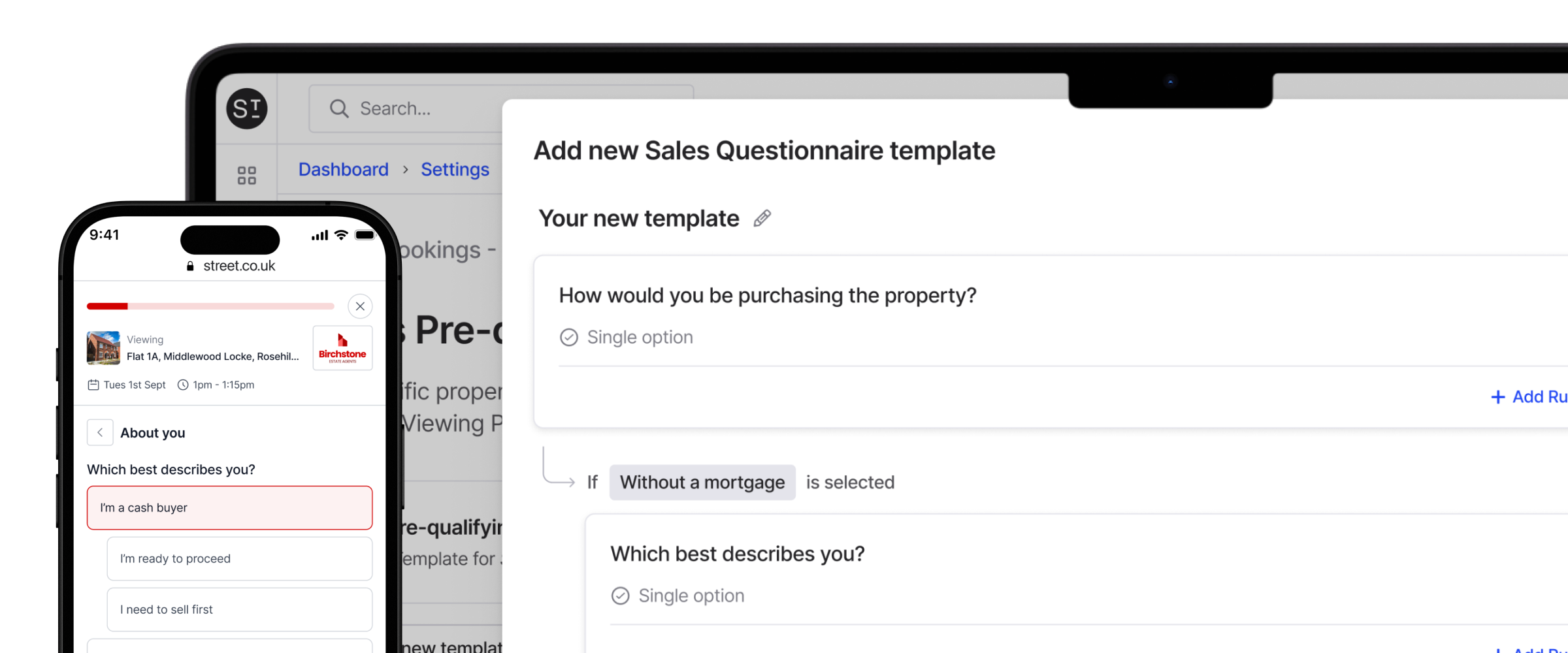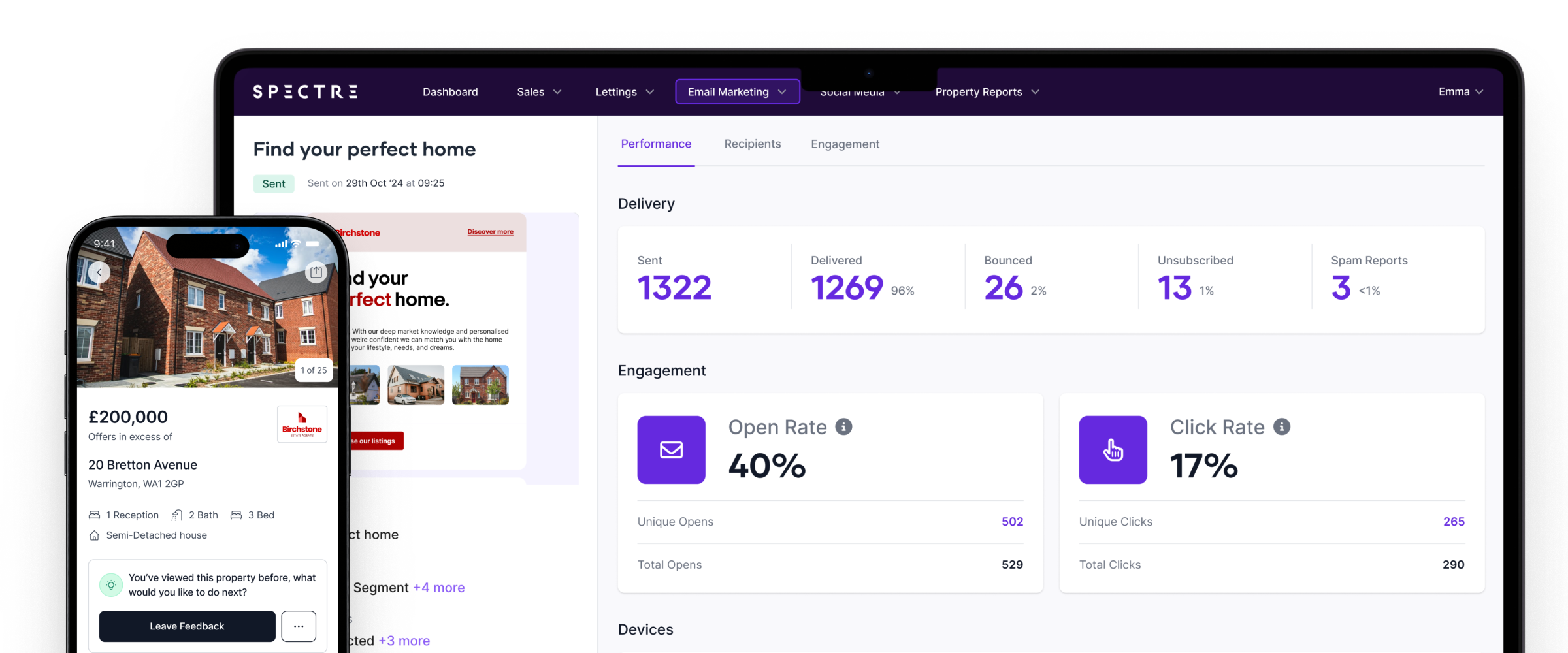Will AI replace estate agents? Yes – to an extent
Artificial Intelligence (AI) is no longer a futuristic concept; it’s here, and, according to recent research, it’s already outpacing smartphone adoption within its first 4 years. From automating property descriptions to managing tenant maintenance requests, AI is doing the heavy lifting that used to take estate agents hours, even days. But with this efficiency comes a pressing question: will AI replace estate agents?
The answer is yes — to a certain extent. But, is that necessarily a negative?
With increasing compliance burdens and growing competition in the space, estate agents are bogged down with manual busywork that’s keeping them from the parts of their job they truly excel in: those human, relationship building tasks that set them apart.
In this article, we’ll explore how AI is currently being used in agencies, why AI could mean up to 50% fewer staff in agencies in the next few years – and how your agency can leverage AI to stay ahead of the curve.
We discuss how agents can future-proof their agencies with AI in more detail in our newest guide.
The current role of AI in estate agency
AI tools like Large Language Models (LLMs), Generative AI, Natural Language Processing (NLP), Predictive Models and Stable Diffusion are already streamlining many of the mundane tasks that consume agents' time. Here are just some of the real-life use cases for these tools.
Enhanced property listings
LLMs and Generative AI tools are already in use across thousands of UK estate agents with 74% currently using it to create written content. At Street.co.uk, our Property Description Generator can create unique property descriptions in seconds, with the agent only needing to input a few property details and choose their desired listing length and tone.
Another type of AI, Stable Diffusion, can be used to enhance property photos, making listings more appealing and helping properties sell, or become tenanted, faster. For example, Street AI’s Image Enhancer can automatically adjust dim lighting, fix poor angles, and even replace cloudy skies with blue ones, giving every listing a professional finish.

Streamlined client communications
LLMs and Generative AI can now craft personalised, on-brand emails in seconds, allowing estate agents to maintain professional, timely communication with their clients, without the time investment.
Tools that can adjust tone of voice and customise content based on previous communications, like Street AI, are particularly valuable, ensuring that an agency’s brand identity remains consistent.
Efficient property management
AI-driven tools can now manage routine tenant requests using Natural Language Processing, reducing inbound maintenance requests by up to 20% for property managers.
For example, AI can automatically respond to common maintenance issues, allowing tenants to self-serve and resolve problems themselves without waiting for a human response from their letting agent. This not only saves time (letting agents are reported to lose over 9.2 hours a week on repairs and maintenance), but also improves tenant and landlord satisfaction.

Quicker, easier listing performance reporting
Previously, estate agents may not have had the time to gather portal data, viewing and pricing feedback, and distribute this to their vendors and landlords – meaning they’d miss out on improved client relationships, and reduced withdrawals.
Now, NLP AI tools can streamline the creation of listing performance reports for agents by automating data collection and analysis, meaning gathering portal statistics and feedback from viewings can take just seconds.
Street AI, for example, uses advanced Natural Language Processing to evaluate sentiment around pricing and viewing feedback, allowing agents to deliver actionable insights more quickly. Additionally, it generates customised email subject lines and body content, ensuring that reports are not only faster to produce but also more insightful and professionally presented.

How to stay ahead: Adapting to AI in your estate agency
Start experimenting with AI
Don’t wait for your competitors to overtake you — start experimenting with AI now.
Try out-of-the-box tools like ChatGPT to see how AI can help with your current processes – just be wary of potential draw-backs.
More generic tools like Chat GPT can produce content that sounds similar, which can erode your agency’s brand identity if overused. They also require some training to use effectively, e.g. on how to use prompts to produce the best results.
Or, try Street’s AI Property Description Generator, a tool tailored to the UK property industry, and receive 5 unique property descriptions completely free.
Partner with a forward-thinking technology provider
One of the best ways to stay ahead is by partnering with a CRM that integrates AI into its platform. This ensures you’re always benefitting from bleeding-edge technology, without having to manage multiple AI tools yourself, or lose out on efficiency by re-entering data into your CRM from an out-of-the-box tool.
The future of AI in estate agency
AI will require less supervision
As AI continues to mature, its role will expand from being a mere tool to becoming a strategic partner for estate agents. In the near future, LLMs could manage the bulk of customer communications, from web chat to email, without human supervision. Predictive AI will also mean data becomes even more accurate, enabling agents to anticipate market shifts and customer needs before they happen.
AI in data-driven decision making
Similarly, these Predictive Models will help agents make better decisions around marketing and strategy.
As access to better data becomes more commonplace in the next few years, agents will gain understanding of market trends and buyer behaviour, meaning they can run more cost-effective, targeted and impactful marketing campaigns.
Reduced workforce, increased efficiency
This isn’t click-bait. As AI becomes more sophisticated, the need for large teams may diminish.
With AI handling more repetitive operational tasks, agencies can reduce their staff while still increasing productivity – at Street.co.uk, we estimate agency staff will decrease by as much as 50% with the efficiencies brought on by AI.
This shift will allow the remaining employees to focus on high-value activities, such as client relations and complex negotiations.
Conclusion: Evolve or get left behind
AI is not just an option for estate agents, it’s becoming a necessity.
Those who adapt will find themselves with more time to get back to the more human aspects of their job, while those who don’t may find themselves outpaced by competitors who are quicker to embrace change.
The future of estate agency lies in a balanced partnership between AI, and human expertise.
While AI can handle a lot of the technical and repetitive work, the human element remains irreplaceable — at least for now. Building relationships, negotiating deals, and guiding clients through stressful processes are areas where human agents excel. However, to remain relevant, agents must leverage AI to enhance these interactions, not replace them.
Stay ahead with Street AI
Don’t let your agency fall behind. Unlock new levels of productivity with Street AI, the industry-first solution designed specifically for UK estate agents.
From automating property descriptions and client communications, to managing tenant requests and streamlining listing performance reports, Street AI is here to supercharge your processes and save your team hours of time.
Want to see it in action? Try Street AI for free today.










.png)















.png)
.jpg)







.jpg)
.png)
.png)
.png)
.jpg)



%20(1).png)
.jpeg)




.png)




.jpeg)



.jpeg)

.jpg)


.jpg)














.png)






.jpg)










